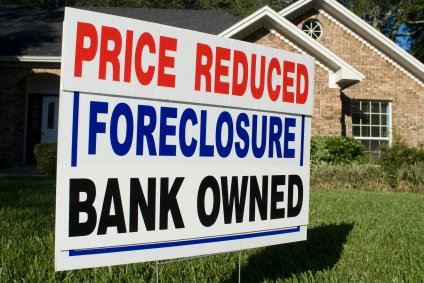As more homes go into foreclosure, you might be considering investing in a foreclosed property to generate some extra income.
Foreclosed homes can be moneymakers in strong rental markets or if you’re able to sell a deeply discounted property for a higher price in the future.
Regardless of whether you’re considering a foreclosure for investment purposes or as potential property in which you might live, you still need to make some informed decisions about any building you buy.
A foreclosure can be a great deal, but only when you’ve done your homework and have taken a good look at other options in the area.
Here are six essential things you need to know and do before buying a foreclosed home:
#1: Flex Your Full Negotiating Power
If you’re not an all-cash buyer, meet with a mortgage lender who can verify your income and assets so you know exactly how much home you can afford.
You need to show the bank selling the home that you’re serious about buying the property and have funds readily available to purchase the property.
Many banks will be happy to take care of closing costs and even some repair costs if they know they can close the deal quickly.
So take the time to calculate your net worth and purchasing power so you can present yourself as a strong buyer in your negotiations with the bank that owns the property.
#2: Calculate Potential Repairs and Costs
Foreclosures are usually far from perfect and you may need to invest a significant amount of money for repairs and other costs.
Run an estimate on repairs so you know exactly what you’re in for – and that you don’t get surprised later.
The last thing you want is to move into the home and then be left with a giant bill for house repairs you didn’t even know needed to be covered.
A thorough home inspection report should give you a good idea of the extent of repairs needed for a particular property.
#3: Take a Tour
Plan on visiting the property at least once – preferably two or three times – so you can perform a thorough walk-through and evaluate all areas of the home.
Never rely solely on pictures posted on a website or reports about the property from the bank. You have to take the time to visit the property in person and explore each and every area of the home.
#4: Research the Neighborhood
If the entire neighborhood is full of foreclosed homes or properties are priced much lower than the average, you could be investing in a property that never actually increases in value.
Make sure you’re making a wise financial decision by looking at sales statistics and other details about the neighborhood.
Are there any planned communities being built nearby? Any signs of retail or commercial growth?
Are the employment opportunities in the area well below average, about average or better than most other areas? If you’re looking at a property that is now in a “ghost town”, you could be wasting your money.
#5: Get Title Insurance
One downside of buying a foreclosure is that you need to do a lot of legwork to get the deal going.
Not only should you hire a private home inspector who can examine every part of the home and give you an unbiased report, but you should also get title insurance to make sure there are no claims or encumbrances on the property.
To provide you with a home loan, most banks will require title insurance; that protects them.
Be sure to also get an owner’s title insurance policy, which protects you in the event there are title problems down the road.
#6 Understand Local Laws
While you’re at it, also make sure you understand the local laws in your city, county or state that pertain to foreclosures.
For example, in some districts homeowners may have a certain amount of time after a sheriff’s sale to try to redeem their properties.
This can vary based on local laws and various stages of foreclosure. But if a homeowner has a right of redemption, that’s an important factor for you to know when you’re considering a foreclosed home.








